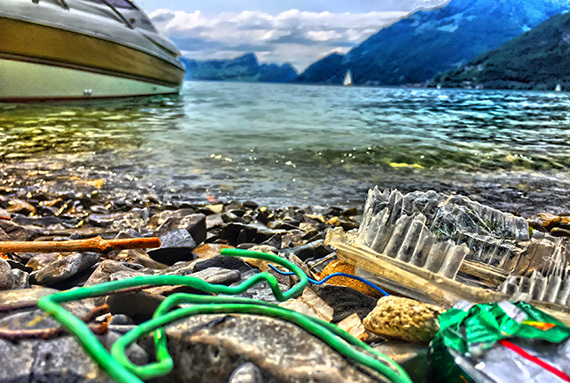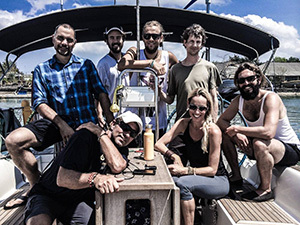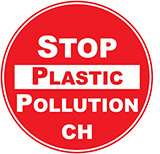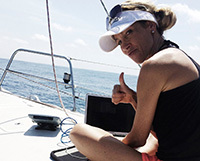
What do you do when you voyage on a sailboat to the most remote beaches on the planet, sampling the ocean water hundreds of miles from the nearest land and everywhere you find plastic? Most people would be discouraged at the enormity of the problem but documentary filmmaker Gabriele Kull was inspired to heal the planet, one person at a time.
 Gabriele is a neighbor who went on this expedition with some of the world's leading research scientists to measure the extent of plastic pollution as part of a documentary film series on sustainability. What they found was absolutely astounding - even plankton in the middle of the Pacific had traces of plastic. They got as far as Christmas Island, in the middle of the Pacific Ocean and witnessed the monthly cleanup of plastic trash along the beach that was required to preserve it from being buried alive under waste.
Gabriele is a neighbor who went on this expedition with some of the world's leading research scientists to measure the extent of plastic pollution as part of a documentary film series on sustainability. What they found was absolutely astounding - even plankton in the middle of the Pacific had traces of plastic. They got as far as Christmas Island, in the middle of the Pacific Ocean and witnessed the monthly cleanup of plastic trash along the beach that was required to preserve it from being buried alive under waste.
Plastic takes a long time to naturally biodegrade - sometimes over 500 years! And when it does, the micro particles are entering the food chain, disrupting people's health. Many countries have recognized this issue and taken steps including banning plastic carry bags as well as the micro beads that are used as an additive in cosmetics.
Gabriele was so inspired by the expedition that when she returned home to Switzerland she set up a campaign called Stop Plastic Pollution (STOPPP) together with other partnering organizations. The intent is that every individual must take responsibility for his or her actions and each small contribution will ultimately help turn the situation around.
It may seem strange that in a country so pure and pristine as Switzerland with a lot of very health-conscious people who recycle religiously, that their environmental concerns haven't touched on this one last subject. Looking around at other countries, Gabriele saw that Switzerland is actually far behind in legislation and recycling. Her research uncovered that plastic is not economically viable to recycle (with the exception of clear PET bottles) so it mostly ends up being burned as an energy source. And even if plastic is recycled into clothing, microfibers get washed out of the fabric and find their way into the environment.

Using Switzerland as an example of how to deal with this issue, Gabriele's STOPPP association works with local shops to have corners set aside to educate people on plastic issues. They also look at other countries that have banned single use plastic bags like India and the European Union as these type bags and microbead usage is still allowed in Switzerland. Their efforts are supported by gathering studies from institutes like the ETH, the world famous research school on Lake Geneva and reports from nongovernmental organizations. Her efforts also include getting government support as well as aligning with global groups that share the same concern.
 Gabriele is like a modern Wilhelm Tell - standing up for what she believes is right so the authorities will notice the sentiment of the people. This issue is not unique to Switzerland - it is a global issue and if each person acts more consciously in their use of plastic it will ultimately benefit their health as well as people as far away as Christmas Island.
Gabriele is like a modern Wilhelm Tell - standing up for what she believes is right so the authorities will notice the sentiment of the people. This issue is not unique to Switzerland - it is a global issue and if each person acts more consciously in their use of plastic it will ultimately benefit their health as well as people as far away as Christmas Island.
Because the plastic problem has no borders, Gabriele connects her organization to globally active institutions such as Plastic Pollution Coalition.